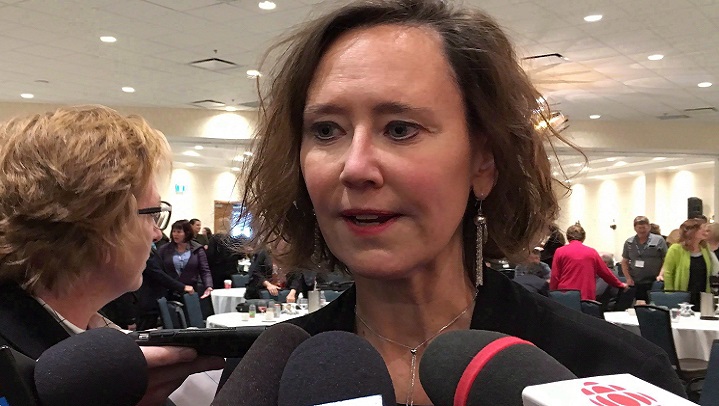Energy and Resources Minister Bronwyn Eyre spoke up Thursday regarding Saskatchewan’s disapproval of the federal government’s proposed Bill C-69, intended to come into effect this summer.

Eyre appeared before the Senate Committee on Energy, the Environment and Natural Resources in Ottawa to express why she believes it would damage the energy sector.
“Bill C-69 will stop, not start, major energy projects and must be scrapped in its current form,” Eyre said.
“Our government believes this new approach to environmental assessments would create significant uncertainty and lead to continued capital flight from our resource sectors.”

Get breaking National news
The province says its concerns include the unpredictable and unreasonable timelines, the new subjective criteria, opportunities for duplication and jurisdictional overreach and the removal of the current standing test.
“Bill C-69 disregards provincial jurisdiction and fails to recognize the proven track record and expertise of provincial regulators.”
It says that eliminating the standing test would mean any organization or individual would be allowed to participate in a public review process of any major project including a new mine or pipeline — leading to increased costs and timeline for environment approval.
Both Saskatchewan and Ontario did not sign on to the final conference communique of Bill C-69 at the Energy and Mines Ministers’ Conference in Iqaluit in August.








Comments